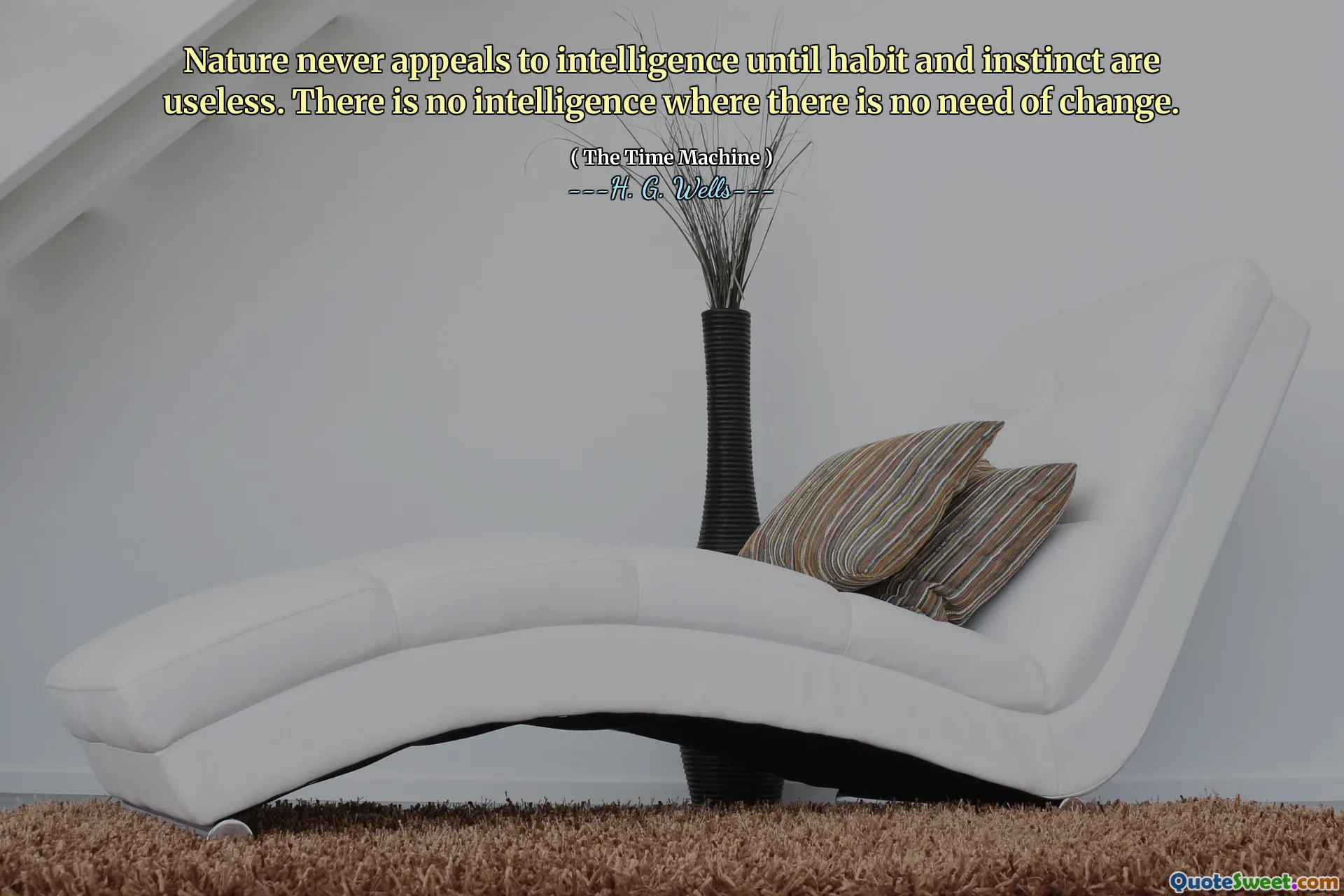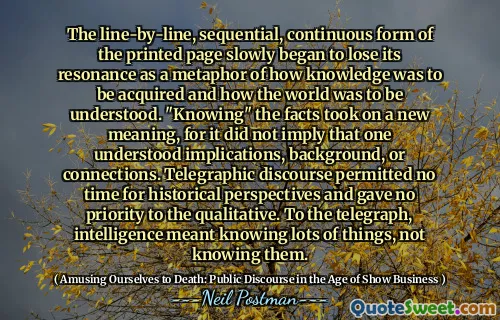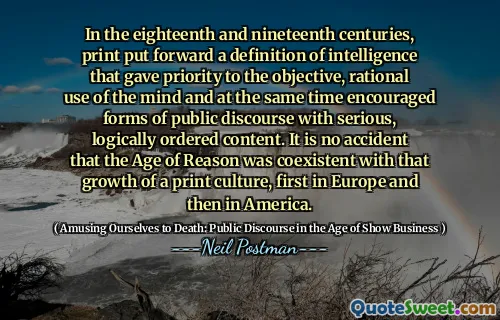
Nature never appeals to intelligence until habit and instinct are useless. There is no intelligence where there is no need of change.
In H.G. Wells' "The Time Machine," the quote highlights the relationship between intelligence and necessity. It suggests that human intellect often only comes into play when habitual actions and instincts fail to address a situation. This implies that intelligence may be dormant in circumstances where routines suffice, indicating a reactive rather than proactive approach to challenges.
Moreover, the quote reflects on the nature of change and adaptation. It emphasizes that a lack of need for innovation may lead to stagnation, suggesting that intelligence shines in times of crisis or transformation. Thus, real progress stems from evolving conditions that demand a shift in thinking, underscoring the dynamic interplay between instinctual behavior and intellectual growth.








